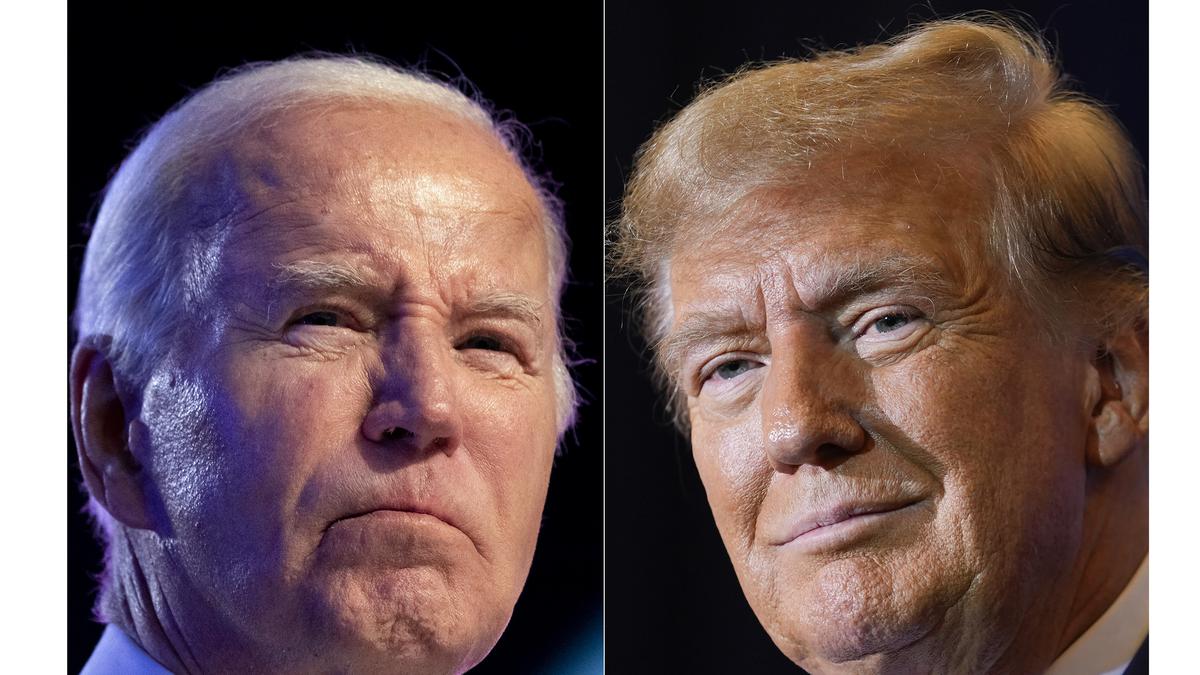
Joe Biden, Donald Trump set to win primary races on Super Tuesday; Biden faces dissatisfied Democratic voters
The Hindu
Presidential candidates campaign ahead of Super Tuesday, with Trump expected to sweep Republican contests and Biden facing challenges.
Presidential candidates crisscrossed the country in the run up to Super Tuesday (March 5) this year, when 17 U.S. States and territories hold their primaries and caucuses to pick their contenders for November’s general election. The support of more than a third of each party’s delegates (i.e., representatives who vote in the parties’ conventions to select the candidate) is up for grabs on Tuesday.
Former U.S. President Donald Trump is expected to sweep the Republican contests on Tuesday, with Nikki Haley, the former American Ambassador to the U.N., having won just one race thus far (Washington DC). Although, at this stage, a Biden-Trump showdown is all but certain, further campaigning has been planned for the following weeks, with groups of states voting in March and April. Mr Trump, who has just under 100 cases against him, received a boost on Monday as the U.S. Supreme Court said it was wrong for the State of Colorado to have taken him off its ballot for his role in the January 6, 2021 attack on the U.S. Capitol.
The incumbent, U.S. President Joe Biden, is running uncontested for the Democratic (re)nomination in many of the states, while some states will have other contestants on them, such as self-help author Marianne Williamson and Minnesota Congressman Dean Phillips.
Mr Biden is therefore expected to win the day on Tuesday but the process has revealed that the ultimate path to the White House - when the primaries are completed and Mr Biden presumably faces Mr Trump - will be far more challenging for Mr Biden, than is often the case for a sitting President seeking a second term. Questions about Mr Biden’s age, perceptions about the economy and inflation and Mr Biden’s handling of the Israel-Hamas conflict have been working against him.
Mr Biden was faced with bleak polling results over the weekend. A New York Times/ Sienna College poll indicated that the President had the support of 43% of registered voters versus Mr Trump’s 48%. Some 10% of those who voted for Mr Biden in 2020 were planning to vote for Mr Trump in 2024. Democratic primary voters were more or less equally split on whether Mr Biden should be their party’s candidate, as per the poll, with the strongest opposition to the idea from those under 45 years of age. The data also indicated that Mr Biden’s edge over Mr Trump among non-white non-college graduates had also significantly narrowed since 2020.
After Democratic politicians urged primary voters in the crucial swing state of Michigan to show their frustration with Mr Biden’s policy towards Israel’s retaliatory attacks on Gaza, which have claimed more than 30,000 lives, more than 100,000 Michiganders cast an ‘ uncommitted’ ballot in last week’s Democratic primary.
This was more than the target of 10,000 uncommitted votes and was some five times the number of such votes in the last two presidential elections and is being seen as a warning to Mr Biden to change his accommodative stance towards Israel. A growing number of voters, not just Muslim Americans but also younger voters across the board , could sit at home on election day if the administration continues with the status quo. A few thousand voters could make a huge difference: Mr Trump beat former Democratic presidential candidate Hilary Clinton in Michigan by less than 11,000 votes in 2016 and Mr Biden won the state from Mr Trump in 2020 by a margin of 2.8% (just over 154,000 votes).













